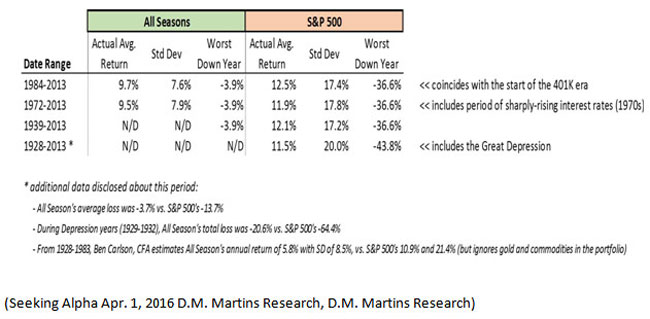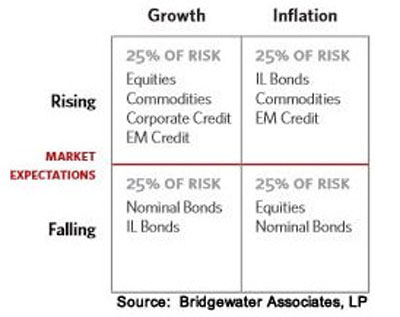|

Humble beginnings
Ray Dalio was born in a middle class family and was an average student. The one inescapable condition was that the family was always in need of more money. While still in school, Ray took up jobs such as delivering newspapers, clearing snow and washing dishes at restaurants. It was when he was about twelve years old that he landed a job as a caddy for golf players. Counter intuitively this proved to be a turning point in his life. Serving businessmen, he picked up their language and thoughts, vital information regarding the working of stock exchanges, as well as hot tips. As a result he put in $5 a share in a stock which promptly tripled due to a takeover bid. Ray Dalio was hooked. Today he is worth more than $12 billion.
After leaving school, Dalio headed for Harvard Business School. He utilised the summer vacations to trade in commodities and on completion of the course took a job with Merrill Lynch, as director of commodities. After a couple of years the urge to go alone proved too strong and he founded Bridgewater in 1975.
Investment Philosophy
Predicting economic events is very difficult, according to Dalio. Attempting to invest in stocks while trying to guess the direction in which the economy is moving is very risky and could result in losses. Hence, his investment philosophy stresses balance.
"There are essentially just two forces influencing returns: growth and inflation. The task, then, is building a portfolio that is able to weather any scenario, regardless of what these two factors are doing."
He suggests that money must be allocated in such a way that relatively high returns can be secured without running the risk of extreme swings in the economic environment. The idea is to distribute risk and not money across different asset classes. For example in the classic case of a 60/40 spilt between stocks and bonds, if stock values go own there is possibility of big losses. It must always be remembered that stocks are at least 3 times as volatile as bonds.
In practise, Dalio adheres strongly to ethics in investing. He says that people should think for themselves and that 'Truth' is understanding reality as it actually is and not what you think or wish it ought to be.
Investment Strategy
Dalio isn't a speculator who has singular big wins or losses. He makes many diversified bets rather than a handful of all-in plunges. (Yahoofinance David Goodboy July 24, 2013)
According to Dalio, the best portfolio is that which has fifteen separate return streams. He believes with at least fifteen uncorrelated investments, overall portfolio risk is reduced by 80%.
Dalio's genius has enabled him to reduce the complex business of investing to a simple and standard formula. This is particularly useful for ordinary unsophisticated investors. The allocation is as follows: Equities - 30%, Long-term Treasuries - 40%, Intermediate-term treasuries - 15%, Gold - 7.5% and Diversified commodities - 7.5%.
Results of testing this formula over the years are given below.

Dalio also seeks to balance portfolios for growth and inflation. His ideal portfolio while providing balance does not depend on forecasting deflationary trends. As the explanatory report of Bridgewater's All Weather Fund puts it: "Bonds will perform best during times of disinflationary recession, stocks will perform best during periods of growth, and cash will be the most attractive when money is tight. Translation: All asset classes have environmental biases. They do well in certain environments and poorly in others. As a result, owning the traditional equity-heavy portfolio is akin to taking a huge bet on stocks and, at a more fundamental level that growth will be above expectations."

Bridgewater Associates
Today Bridgewater Associates is the largest hedge fund in the world, managing assets worth about $150 billion. Individual investors would do well to go for the long term, he says. To try to make a quick buck is "more difficult than trying to compete in the Olympics. If I asked you if you're going to compete in the Olympics you would say, 'I won't do it.' So many people go in that game and then they lose it. I don't recommend it. I do recommend that they understand to have a balanced portfolio and hold that portfolio over time."
At Bridgewater, "We put hundreds of millions of dollars each year to try to beat the market, to try to understand it," adding that many other sophisticated investors and institutions are doing the same thing. "Those are the poker players you have to play against. You're not going to be able to do that." (Businesssinsider Richard Feloni Apr 14, 2017).
Dalio clearly is for a diversified portfolio with a balanced structure. Despite all the researches and algorithms, Dalio seems to believe that investment managers really have only a dim idea of what is happening out there in the market. Hence, he advocates making several bets, some of which will win and some of which will lose, but by doing so one can ensure that the whole portfolio will be better off. His strategy is quintessentially one of the long/short. Further, Dalio is insistent that investors must be fully aware of all transaction costs that they have to incur. Good information about costs would help to avoid overpaying.
Daliospeak
Dalio said it best in an interview from Davos with CNBC:
"I think the important thing here if I'm an investor is that the most important thing you can have is a good strategic asset allocation mix.
In other words, you're not going to win by trying to get what the next tip is -- what's going to be good and what's going to be bad. You're definitely going to lose. So, what the investor needs to do is have a balanced, structured portfolio -- a portfolio that does well in different environments." (Yahoofinance David Goodboy July 24, 2013)
Dalio also recommends investors rebalance their portfolio -"bring back your assets to their original allocations - on a regular basis (once a year is good). To use an example from Robbins' second personal finance book, "Unshakeable.""Imagine you start with 60% in stocks and 40% in bonds; then the stock market plunges, so you find yourself with 45% in stocks and 55% in bonds. You'd rebalance by selling bonds and buying stocks."
Content is prepared by Wealth Forum and should not be construed as an opinion of HDFC Mutual Fund.

Share this article
|